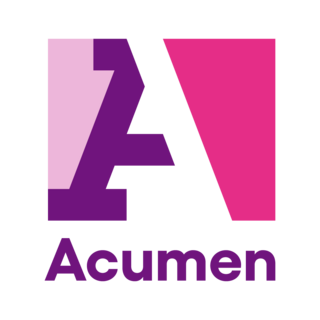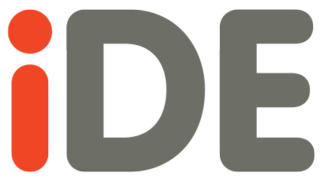
Mercy Corps is a global non-governmental, humanitarian aid organization operating in transitional contexts that have undergone, or have been undergoing, various forms of economic, environmental, social and political instabilities. The organization claims to have assisted more than 220 million people survive humanitarian conflicts, seek improvements in livelihoods, and deliver durable development to their communities.
Heifer International is a global nonprofit working to eradicate poverty and hunger through sustainable, values-based holistic community development. Heifer International distributes animals, along with agricultural and value-based training, to families in need around the world as a means of providing self-sufficiency. Recipients must agree to "pass on the gift" by donating animal offspring, as well as sharing the skills and knowledge of animal husbandry and agricultural training with other impoverished families in the community. The organization receives financial support from the Bill & Melinda Gates Foundation, BlackRock, Cargill, Mastercard Foundation, Walmart and the W. K. Kellogg Foundation.
Opportunity International is a 501(c)(3) nonprofit organization chartered in the United States. Through a network of 47 program and support partners, Opportunity International provides small business loans, savings, insurance and training to more than 14 million people in the developing world. It has clients in more than 20 countries and works with fundraising partners in the United States, Australia, Canada, Germany, Switzerland, Singapore, Hong Kong and the United Kingdom. Opportunity International has 501(c)(3) status as a tax-exempt charitable organization in the United States under the US Internal Revenue Code.

The U.S. African Development Foundation (USADF) is an independent U.S. government agency established by Congress in 1980 to invest directly in African grassroots enterprises and social entrepreneurs. USADF's investments aim to increase incomes, revenues, and jobs by promoting self-reliance and market-based solutions to poverty. USADF targets marginalized populations and underserved communities in the Sahel, Great Lakes, and the Horn of Africa. It partners with African governments, other U.S. government agencies, private corporations, and foundations to achieve transformative results.

Acumen is a nonprofit impact investment fund based in the U.S. that focuses on investing in social enterprises that serve low-income individuals. Acumen was founded in April 2001 by Jacqueline Novogratz. It aims to demonstrate that small amounts of philanthropic capital, combined with business acumen, can result in thriving enterprises that serve vast numbers of the poor. Over the years, Acumen has invested $154.4 million in 167 companies and has had a successful track record in sourcing and executing investment opportunities in the clean energy, education, financial inclusion, health care and agriculture sectors.

iDE, formerly International Development Enterprises, is an international nonprofit organization that promotes a business approach to increasing income and creating livelihood opportunities for poor rural households. iDE was founded in 1982 by Paul Polak, a Denver, Colorado psychiatrist who promoted the concept of helping poor people become entrepreneurs instead of simply giving them handouts. Originally, iDE was devoted to the manufacture, marketing, and distribution of affordable, scalable micro-irrigation and low-cost water recovery systems throughout the developing world. iDE facilitates local manufacture and distribution of these products through local supply chains that sell to farmers at an affordable price which they can repay in one growing season. This strategy allows farmers to grow higher value and surplus crops, and in turn links them to high-value crop markets where they can realize profits from their higher yields. Recently, their success is in the promotion of sanitation products to decrease the practice of open defecation leading to diarrheal disease.

Aga Khan Fund for Economic Development SA is a Swiss for-profit entity and international development finance institution which invests in countries of East Africa, West Africa, Central Asia, and South Asia. It is based in Geneva, Switzerland.

The Global Alliance for Improved Nutrition (GAIN) is a non-profit foundation based in Geneva, Switzerland. GAIN was developed during the UN 2002 Special Session of the General Assembly on Children. GAIN’s activities include improving the consumption of nutritious and safe foods for all. The foundation is supported by over 30 donors and works closely with international organisations and United Nations agencies. It has a 20-year history of food system programmes with a focus on adolescent and child nutrition, food system research, fortification, small and medium enterprise assistance, biofortification of crops, and reducing post-harvest losses.

Self Help Africa is an international charity that promotes and implements long-term rural development projects in Africa. Self Help Africa merged with Gorta in July 2014, and in 2021 merged with UK-based INGO, United Purpose. The organisation also owns a number of social enterprise subsidiaries - Cumo Microfinance, TruTrade and Partner Africa.
The Farmer-to-Farmer (F2F) Program is funded by the US Agency for International Development through the US Farm Bill to assist developing countries, middle-income countries, and emerging markets around the world to increase farm production and incomes. It promotes sustainable economic growth, food security and agricultural development worldwide. Volunteer technical assistance from US farmers, agribusinesses, cooperatives, and universities helps developing countries improve productivity, access new markets, build local capacity, combat climate change and conserve environmental and natural resources. Farmer-to-Farmer also aims to increase the American public's understanding of international development issues and programs and international understanding of the U.S. and U.S. development programs.
One Acre Fund is a social enterprise that supplies smallholder farmers in East Africa with asset-based financing and agriculture training services to reduce hunger and poverty. Headquartered in Kakamega, Kenya, the organization works with farmers in rural villages throughout Kenya, Rwanda, Burundi, Tanzania, Uganda, Malawi, Nigeria, Zambia, and Ethiopia.

Farm Radio International, or Radios Rurales Internationales, is a Canadian non-profit organization that was founded in 1979 by CBC Radio broadcaster George Atkins. The organization is headquartered in Ottawa, Ontario and works with radio broadcasters to improve food security and agricultural methods for small-scale farmers and rural communities in African countries.

Cotton made in Africa ("CmiA") is a project initiative launched and managed by the Aid by Trade Foundation (AbTF), headquartered in Hamburg, Germany. AbTF was founded in 2005 by Dr. Michael Otto, the Hamburg business entrepreneur and Chairman of Otto Group. Cotton marketed under the badge is produced according to strict criteria for environmental, economic, and social sustainability.
Purchase for Progress (P4P) is an initiative of the United Nations World Food Programme (WFP), involving over 500 partnerships, including Bill & Melinda Gates Foundation, the Howard G. Buffett Foundation, FAO, ACDI/VOCA, TechnoServe and others. Launched in September 2008 as a five-year pilot, P4P sought to explore programming and procurement modalities with the greatest potential to stimulate agricultural and market development in ways that maximized benefits to smallholder farmers. The program, largely developed by the eleventh Executive Director of the WFP, Josette Sheeran, arose as the WFP desired to purchase food in a way that was part of the "solution to hunger". These efforts are aligned with recommendations issued by the UN Committee on Economic, Social and Cultural Rights that call for an establishment of programs in support of socially vulnerable groups. and to the Zero Hunger Challenge launched by the UN Secretary General Ban Ki-moon. Special UN Reporter 2012–2014, Olivier De Schutter, claimed that public procurement systems favour economically-strong bidders, thus excluding smallholder farmers. His conclusion was that public procurement schemes supportive of smallholders could have "powerful impacts on the reduction of rural poverty." P4P is built upon this very principle as it enables low-income farmers to supply food to the WFP's operations. Eventually the transaction can be regulated by a forward contract, with the farmer agreeing in selling in the future a certain amount of output at a fixed price. Essentially, the P4P program aims to create a wide and sophisticate market for commodities in developing countries.
Africa Rural Connect (ARC) is a program of the National Peace Corps Association. The website was launched on July 15, 2009 as an online collaboration tool for users to share and build upon ideas to solve some of the challenges facing rural African communities. The ARC community features ideas and insight from returned and current U.S. Peace Corps Volunteers, members of the African Diaspora, development professionals, and academic scholars. ARC also encourages input from anyone who may have an interests or skill-sets that coincide with the ideas posted on the site. ARC is also holding a competition, offering funding to implement the best projects on the site. The second Africa Rural Connect Competition launched on March 15, 2010 and will run until November 15, 2010.
AGRA,formerly known as the Alliance for Green Revolution in Africa is an African-led African-based organization that seeks to catalyse Agriculture Transformation in Africa. AGRA is focused on putting smallholder farmers at the centre of the continent's growing economy by transforming agriculture from a solitary struggle to survive into farming as a business that thrives. As the sector that employs the majority of Africa's people, nearly all of them small-scale farmers, AGRA recognizes that developing smallholder agriculture into a productive, efficient, and sustainable system is essential to ensuring food security, lifting millions out of poverty, and driving equitable growth across the continent.
Purdue Improved Crop Storage (PICS) bags are bags developed by scientists at Purdue University to store grain and seeds. They use hermetic storage technology to reduce loss of post-harvest cowpea due to orchid infestations in West and Central Africa.
The Global Alliance for Livestock Veterinary Medicines (GALVmed), formerly the Global Alliance for Livestock Vaccines (GALV), is a not-for-profit livestock health product development and access partnership. It operates as a public-private partnership and a UK registered charity headquartered in Edinburgh.

The Nigerian Capital Development Fund (NCDF) is an independent social investment financial intermediary institution. This hybrid organization was set up mainly to address the challenges of poverty in low income rural communities in Nigeria. The institution mobilizes capital from the public and private sectors to invest in projects, businesses and social enterprises with the intention to generate good financial returns and measurable positive social-environmental impact, as well as act as a champion to help increase awareness and confidence on the advantages of impact investing.

Babban Gona, which means "Great Farm" in the Hausa language, is a social enterprise organization that provides support for smallholder farmers in Nigeria to become more profitable.











